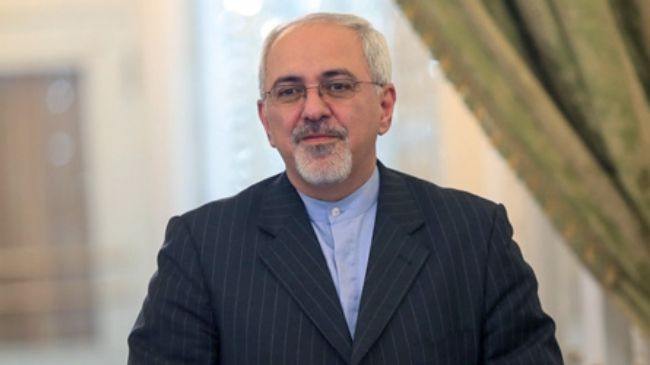Why Zarif Traveled to Iraq

-This visit, which is made after Haider al-Abadi was introduced as Iraq’s new prime minister, is very important and can bring the significant message to the new Iraqi government that the Islamic Republic of Iran continues to support the government and people of Iraq.
-Right now, Iraq is faced with both security and political crises and the presence of the Foreign Minister of the Islamic Republic of Iran can greatly help this country.
-The National Coalition of Iraq which is led by Ibrahim al-Jaafari in Iraq’s parliament and is comprised of all Shiite groups has, to a great extent, overcome the past differences and the election of the Parliament Speaker, the President and the new Prime Minister has distanced Iraq from the past political crises.
-Of course, there are still groups inside the parliament and the society which are considered a minority and are still adding flames to the fire of the political crisis in Iraq.
-Under these conditions, since the Islamic Republic of Iran has good and expanded relations with the minority groups, including the Kurds and the Sunnis of this country, it could play a special role in ending the political crisis in Iraq.
-The security crisis caused by the presence of Daesh in Iraq has now reached the borders of Iran and Jordan and its threats are growing daily.
-Apparently, a global coalition is forming to remove the threat of Daesh and the US, as the head of this global coalition, is interested in collaborating with the Islamic Republic of Iran in its fight against Daesh. Nevertheless, the intention of the US is not clear because they, along with some of the regional countries, intend to accuse Iran of ethnic struggle and fighting against the Sunnis as soon as Iran enters the scene.
-On this basis, the Islamic Republic of Iran has, hitherto, intelligently supported the central government in its fight against Daesh and Mr. Zarif would stress Iran’s continued spiritual support in his meetings with the prime minister and other officials of Iraq and offer the transfer of Iran’s experiences.
-Considering the fatwa issued by Ayatollah Sistani with regard to theJihad against Daesh which has led to the readiness of hundreds of mobilized forces, there is no need at the time being for the direct presence of Iran’s military forces in Iraq.
-The Islamic Republic of Iran could, thus, offer considerable help to the new Iraqi government in security and political aspects to return peace and stability to this country.
-Under conditions when about 50% of Iraq is not under the authority of the central government, this visit could show that the Islamic Republic of Iran will not leave Iraq and its government alone.
-In this visit, Mr. Zarif would certainly meet with Mr. Maleki and express Iran’s appreciation with regard to his efforts in establishing warm and friendly relations with Iran during his tenure as prime minister.
-I believe that the level of relations between Iran and Iraq will not only not be reduced during al-Abadi’s tenure but will even increase.
-During the last two years of Maleki’s tenure as prime minister, relations between Iran and Iraq experienced a period of no change because, due to the domestic differences in Iraq and political disputes in the security, military, political and economic structure of this country with the central government, the possibility of expansion of cooperation between the two countries had vanished.
-During the last two years of Maleki’s government, none of the economic agreements including the transfer of electricity or participation in the big projects of this country or the military and security agreements was implemented.
-Therefore, if political differences are resolved and the government is established under al-Abadi’s leadership who is from the same party as Noori al-Maleki, then it could be hoped that the expansion of relations between Iran and Iraq would accelerate.
-Hence, Mr. Zarif’s visit to Iraq on the verge of the establishment of the new government in this country could, on one hand, begin the expansion of relations between the two countries and, on the other, maintain Iran’s status and position in Iraq.

